
"おはようございます" (Ohayou gozaimasu)" is a Japanese phrase used to say "Good morning." Just like other greeting phrases, it is mainly used during the morning and not at any other time of day. However, there are exceptions, and its usage can change depending on the person you're speaking to or the situation. In this article, we will explore the meaning of "Ohayou gozaimasu," how to use it, how to respond, examples of conversations, and its origin.
How To Say "Good Morning" in Japanese?

In Japanese, "Good morning" is said as "おはようございます" (Ohayou gozaimasu). It’s a common morning greeting used when you first meet someone during the day, whether it's a family member, friend, or coworker.
While it is typically used in the morning, usually until around 10 or 11 AM, it wasn’t always limited to that time. The phrase actually originated from expressions used in traditional kabuki theater, such as "It is early of you to arrive" or "Thank you for your early efforts." These phrases were eventually shortened into the "Ohayou gozaimasu" that is widely used today.
How To Write "Good Morning" in Japanese Hiragana?
If you want to write "Ohayou" in hiragana, it’s written as "おはよう." "Ohayou gozaimasu" is written as "おはようございます." Both "Ohayou" and "Ohayou gozaimasu" are generally written in hiragana.
How To Write "Good Morning" in Japanese Kanji?
The phrase "Ohayou gozaimasu" comes from expressions like "御早いお着きでございます (Ohayai otsuki de gozaimasu)" and "御早くからご苦労様でございます (Ohayaku kara gokurou sama de gozaimasu)," which are polite phrases used to acknowledge someone's early arrival or effort. In kanji, it can be written as "御早う御座います" or "お早う御座います." However, these days, it's almost always written in hiragana, and kanji is rarely used.
What’s the Difference Between "おはよう (Ohayou)" and "おはようございます(Ohayou Gozaimasu)"?
"Ohayou" is a casual version, commonly used between family, friends, or people you're close with. It’s also used by seniors when speaking to juniors. On the other hand, "Ohayou gozaimasu" is a more polite version, with "gozaimasu" added for formality. This phrase is used in customer service, business settings, or when speaking to superiors. Because it’s more formal, it can also be used with strangers, like when greeting someone while walking your dog.
How Is "Good Morning" Used in Japanese?
1. Saying it to your family or partner when you wake up in the morning.
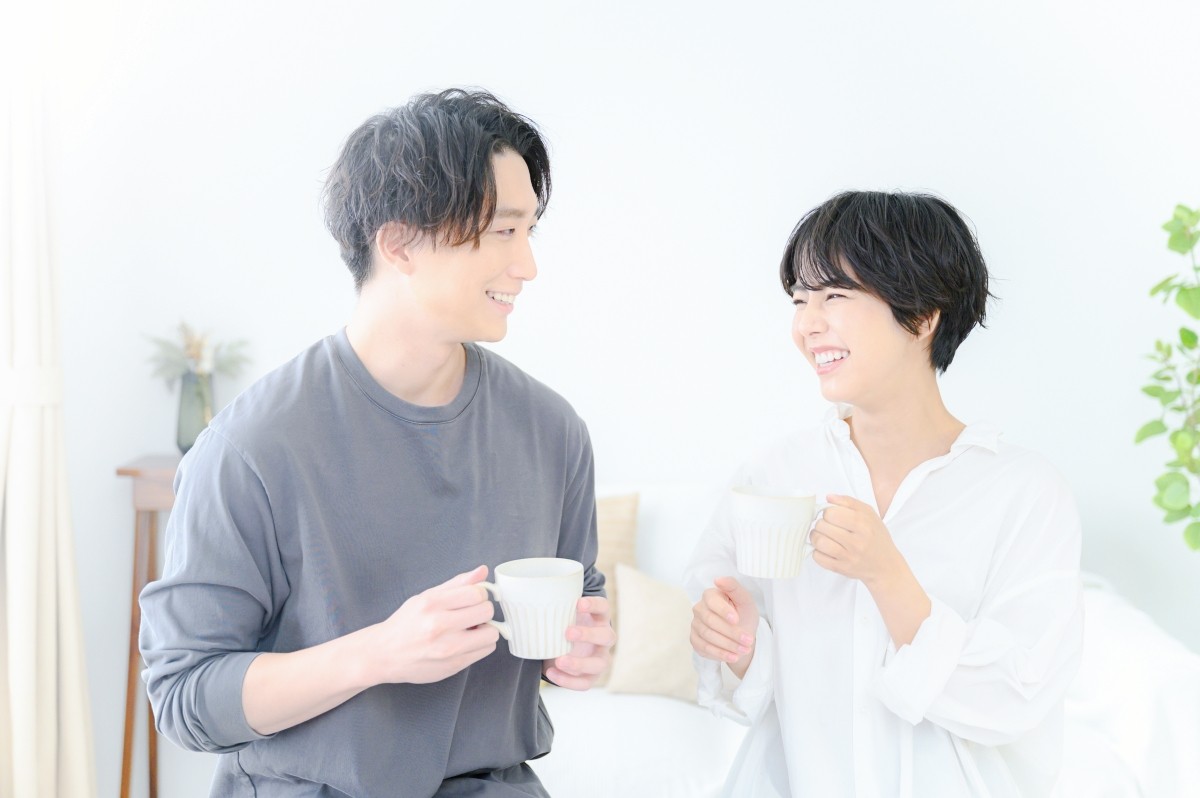
One common timing is when you first meet your family or partner after waking up. In such cases, it's typical to greet them with "Ohayou." However, morning greetings can vary depending on the family or couple. Some people might use more casual expressions like "Oha," while others intentionally greet with the more formal "Ohayou gozaimasu." In some cases, they may skip "Ohayou" altogether and start the conversation with phrases like "Did you sleep well?" or "Breakfast is ready," which are more specific to morning interactions.
2. When you arrive at work or your part-time job : Also used in the evening and at night
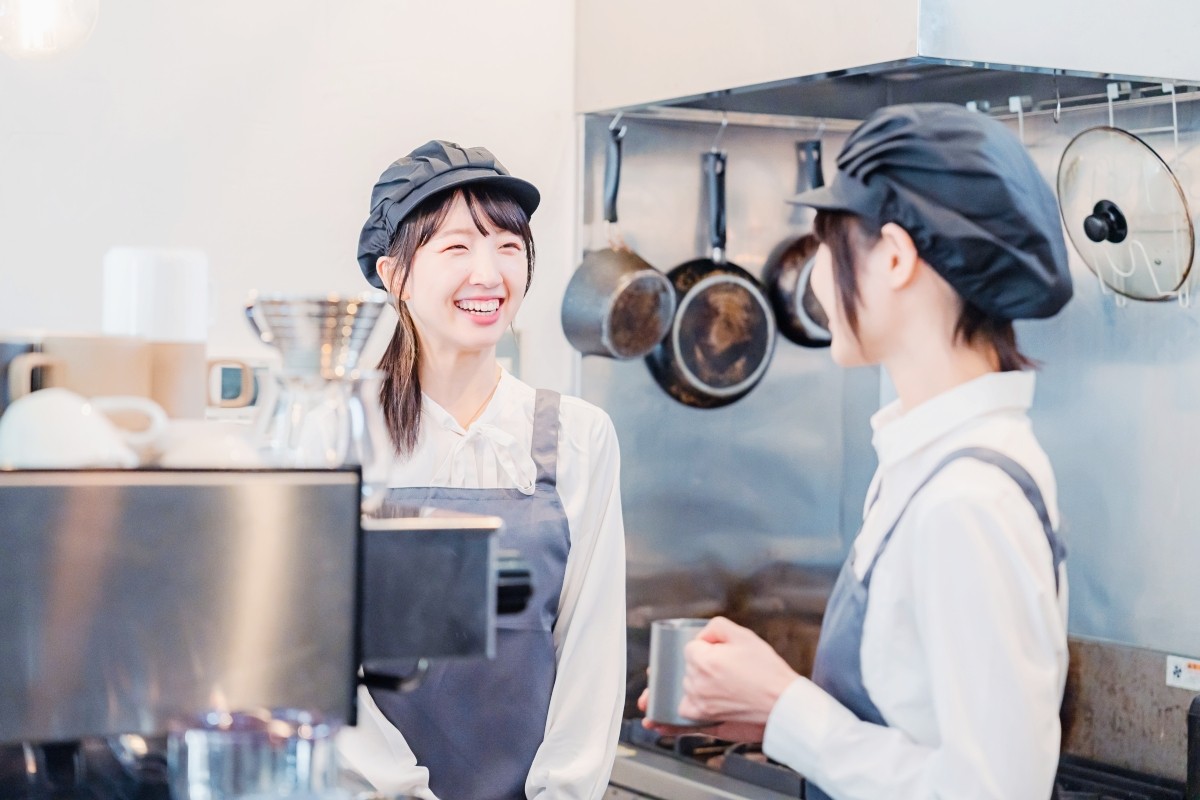
Although "Ohayou gozaimasu" is generally used as a morning greeting, it’s also commonly used outside of the morning. One example is when you arrive at work or your part-time job. In some industries with shift-based schedules, it’s customary to say "Ohayou gozaimasu" even if you’re arriving in the afternoon or evening.
Additionally, friends sometimes greet each other with "Ohayou" even when they meet in the afternoon or evening. This is because "Konnichiwa" (Hello) or "Konbanwa" (Good evening) can feel too formal for close relationships, and people may prefer the casual "Ohayou" instead.
How to respond to "Ohayou gozaimasu"
When someone says "Ohayou gozaimasu," the typical response is to say "Ohayou gozaimasu" back. Similarly, if someone says "Ohayou," you would respond with "Ohayou."
However, when a friend, colleague, or someone of a lower rank greets you with "Ohayou gozaimasu," it doesn’t always mean you have to reply with the same level of formality.
Here are some examples of how to respond in different situations:
Responding to friends or colleagues
| Japanese | romaji |
| おはよう | Ohayou |
| おっはよー | Ohhayo |
| おつかれー | Otsukaree |
| おつかれさま | Otsukaresama |
Responding to someone inferiors
| Japanese | romaji |
| おはよう | Ohayou |
| おはようございます | Ohayou gozaimasu |
| はい、おはよう | Hai, ohayou |
| おつかれ | Otsukare |
| おつかれさま | Otsukare sama |
Other ways to say "Good Morning" in Japanese
There are more casual ways to say "Ohayou gozaimasu." However, these should be reserved for family, partners, close friends, or people of a lower rank. Using these expressions with people you're not close to might come off as rude, so it’s generally safer to stick with "Ohayou gozaimasu" in more formal settings.
| Japanese | romaji |
| おつかれー | Otsukare |
| やあ | Yah |
| うっす | Ussu |
| おっす | Ossu |
| はよっ | Hayo |
| はよっす | Hayossu |
| おはようさん | Ohayou san |
Japanese morning greetings other than "Ohayou gozaimasu"

Morning greetings are not just "good morning" or "good morning". This is because some people skip morning greetings such as "good morning" and start a conversation suddenly. In that case, the content of the conversation may include the meaning of "good morning", or the phrase may vary, such as confirming that the other person has woken up or caring about the physical condition in the morning.
Here are some other Japanese phrases that you can use as a morning greeting besides "Good morning".
When to greet family in the morning
| Meaning | Japanese | romaji |
| How are you? | 元気? | Genki? |
| How are you doing? | 調子はどう | Choushi ha dou? |
| Did you sleep well? | よく眠れた? | Yoku nemureta? |
| Are you awake? | 起きた? | Okita? |
| Will you have breakfast? | 朝食食べる? | Choshoku taberu? |
| What's for breakfast? | 朝ごはん何? | Asa gohan nani? |
When you say hello to a friend or colleague in the morning
| Meaning | Japanese | romaji |
| How are you? | 元気? | Genki? |
| Good job / Thank you for your hard work | おつかれさま | Otsukare sama |
| How are you doing? | 調子はどう? | Choushi ha dou? |
| You're early, huh! | 早いですね | Hayai desune |
| It's hot today | 今日も暑いですね | Kyoumo atsuidesune |
| It's cold today | 今日も寒いですね | Kyoumo samui desune |
| It's a nice day today | 今日はいい天気ですね | Kyouha ii tenki desune |
Regional Dialects of "Good Morning" in Japan
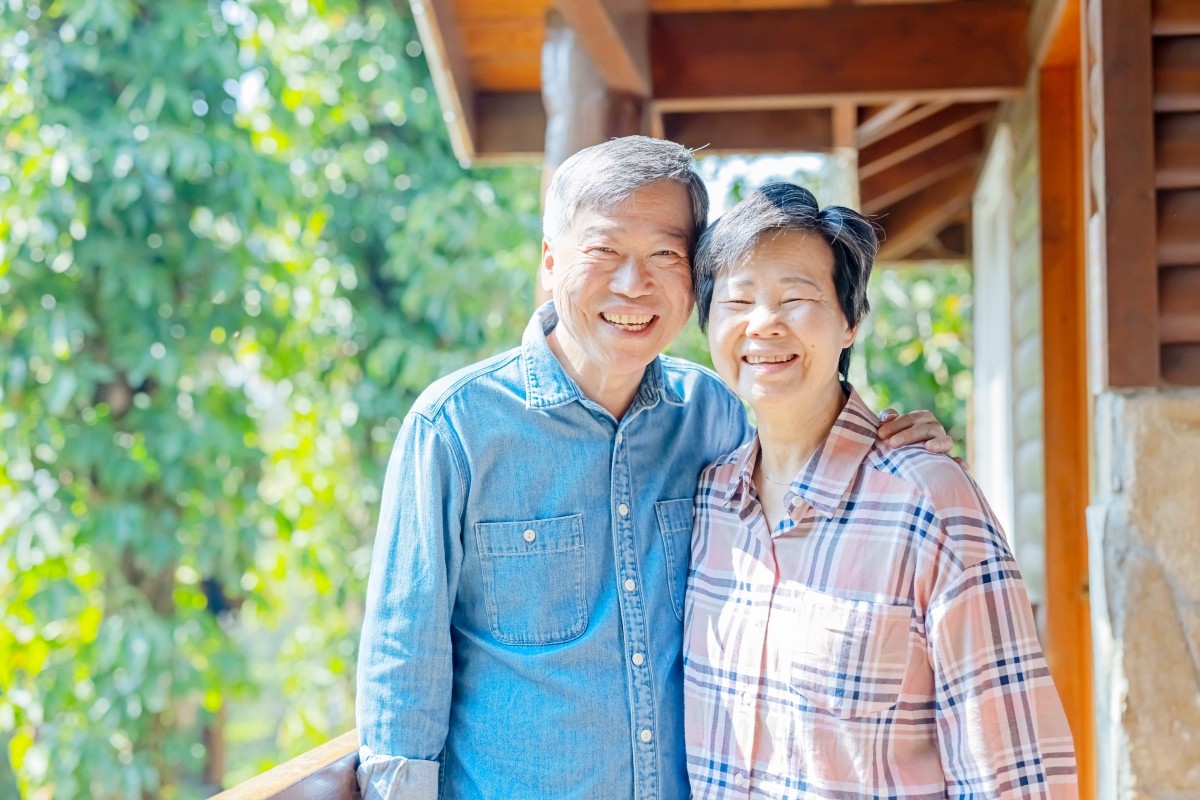
In Japan, there are various regional variations of morning greetings, depending on the area. While "Ohayou gozaimasu" originated from Kabuki, some regions have their own unique versions with different origins. Here are a few dialects derived from "Ohayou" and those related to confirming whether someone is awake.
Dialects Derived from "Ohayou"
おはよーさん(Ohayo san): Mie, Shiga, Kyoto, Osaka, Hyogo, Nara, Shimane, Oita
はやいのう(Hayai nou): Fukui, Mie, Kagawa, Oita, etc. (in some areas)
Dialects derived from "Did you wake up?"
おきさしたか(Okisa shitaka): Some parts of Shimane Prefecture
おきあがったけえ(Oki agatta kee): Some parts of Kumamoto Prefecture
おひるなりやした(Ohiru nari yashita): Some parts of Kochi Prefecture
おひんなりましたか(Ohin nari mashitaka): Some parts of Ehime Prefecture
Conversation Examples Using "Good Morning" in Japanese
Here are some simple phrases to use when greeting someone with "Good Morning" in Japanese.
1. When talking with family
A: Good morning, did you sleep well? (Ohayou, yoku nemureta?)
B: Good morning, yeah, I slept well. (Ohayou, un, yoku nemuretayo)
A: How are you feeling? (Taichou ha dou?)
B: Yeah, I'm fine. (Un, genki)
2. When meeting a friend on the way to school
A: Good morning! That scrunchie is so cute! (Ohayou, sono shushu kawaiine!)
B:Thanks, I made it myself. (Arigatou, kore tedukuri nano)
A: I want to make one too! Teach me how. (Watashi mo tsukuritai! Tsukurikata oshiete)
B: Sure, no problem. (Un, iiyo)
3. When you go to work
A: Good morning. (Ohayou gozaimasu)
B: Good morning. (Ohayou gozaimasu)
A: It’s hot again today, isn’t it?. (Kyou mo atsui desune)
B: Yes, it is. I can’t wait for the cool season. (Sou desune, suzushii kisetsu ga machidoushii desune)


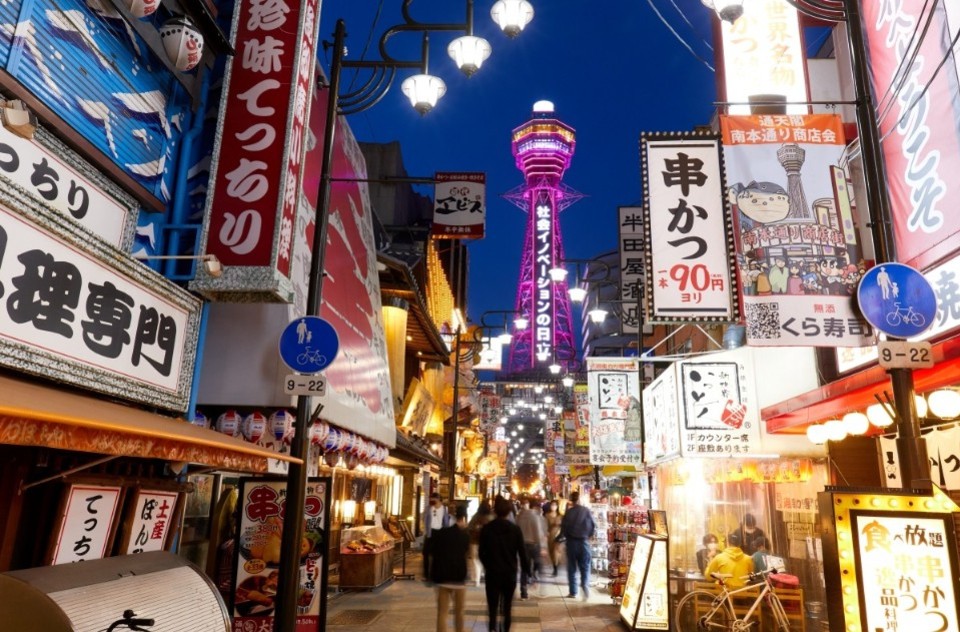
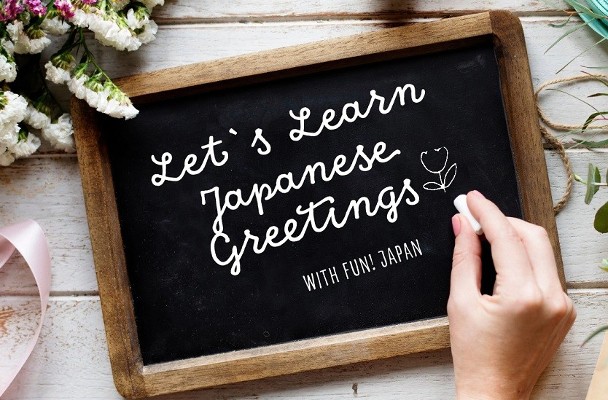
Comments